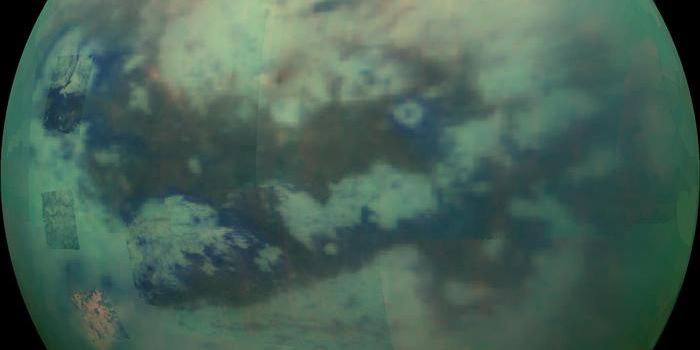A Shocking Source of Oxygen: Deep-Sea Minerals That Generate Electricity
It's long been thought that photosynthesis was basically the only way that oxygen is naturally generated on Earth (some bacteria can also produce oxygen by breaking down nitrates). But a new study has revealed another method of oxygen production. Scientists have discovered that metallic minerals on the floor of the ocean, as much as 13,000 feet (3,962 meters) below the surface, can generate oxygen. The oxygen that is made there also seems to support the survival of sea creatures that rely on oxygen but live in total darkness, where the sun cannot penetrate, or stimulate photosynthesis. The findings have been reported in Nature Geoscience.
"For aerobic life to begin on the planet, there had to be oxygen, and our understanding has been that Earth's oxygen supply began with photosynthetic organisms," said study co-author Andrew Sweetman of the Scottish Association for Marine Science (SAMS). "But we now know that there is oxygen produced in the deep sea, where there is no light. I think we, therefore, need to revisit questions like: Where could aerobic life have begun?"
On the floor of the ocean, there are small mineral deposits known as polymetallic nodules, which may be as small as a particle or a large as a potato. They contain metals like cobalt, copper, lithium, manganese, and nickel. Since these metals are used in batteries, mining companies are now trying to extract those vital minerals.
"We need to rethink how to mine these materials, so that we do not deplete the oxygen source for deep-sea life," noted study co-author Franz Geiger, a Professor of Chemistry at Northwestern University.
When Sweetman and colleagues were sampling a region of the Clarion-Clipperton Zone's seabed in the Pacific Ocean, they detected oxygen. The assumed that their sensors were broken. They kept recalibrating the sensors, and obtaining confounding findings once again.
"We would come home and recalibrate the sensors, but, over the course of ten years, these strange oxygen readings kept showing up," Sweetman said. Finally, they used a second method that confirmed their readings, and knew that they, "were onto something ground-breaking and unthought-of."
Geiger also knew from previous work that electricity could be generated when rust mixed with seawater. The team wondered if the polymetallic nodules produced enough electricity to make oxygen in a chemical reaction known as seawater electrolysis.
It takes only 1.5 volts to split seawater molecules and make oxygen; and the team found that individual nodules could produce as much as 0.95 volts. When clustered together, the nodules made even more, like linked batteries.
"It appears that we discovered a natural 'geobattery,'" Geiger said. "These geobatteries are the basis for a possible explanation of the ocean's dark oxygen production."
Deep sea mining can wreak havoc on local ecosystems, and the researchers noted that the mining industry should consider these findings.
"In 2016 and 2017, marine biologists visited sites that were mined in the 1980s and found not even bacteria had recovered in mined areas," Geiger said. "In unmined regions, however, marine life flourished. Why such dead zones persist for decades is still unknown. However, this puts a major asterisk onto strategies for sea-floor mining, as ocean-floor faunal diversity in nodule-rich areas is higher than in the most diverse tropical rainforests."
Sources: Northwestern University, Nature Geoscience









